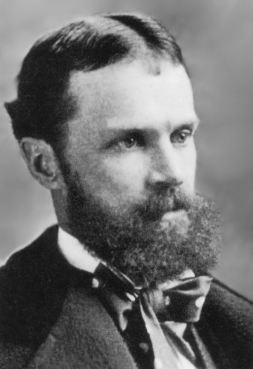On the value of winning
I think winning is a dirty word to some people. I used to think that way, but it’s simply not true. Competition in itself is not evil. Losing teaches lessons that can turn into positive experiences just as much as winning can. Similarly, winning a debate, a legal case, or writing an award-winning book can even be victories in the public consciousness of truth, goodness, and beauty.[1]
Christianity and Winning
I think that Christians should fight to win (see Proverbs 24:1-11). And I don’t mean simply using violence. I’m nearly a pacifist.[2] I fear that Christians frequently believe that effort and strategy are opposed to grace. They also believe that victory and winning are not valid goals.
I wanted to win all the next fights: Ender’s Game
One of the most poignant passages in all of literature about winning is in Ender’s Game. For context, bullies surround a younger bore to torment him when there was no surveillance to keep him safe. He was smaller than his assailants, but he destroyed the gang leader with frightening efficiency. Afterward, a military officer questions the boy in front of his parents to determine why he fought so ferociously:
“We’re willing to consider extenuating circumstances,” the officer said.
“But I must tell you it doesn’t look good. Kicking him in the groin, kicking him repeatedly in the face and body when he was down— it sounds like you really enjoyed it.”
“I didn’t,” Ender whispered.
“Then why did you do it?”
“He had his gang there,” Ender said.
“So? This excuses anything?”
“No.”
“Tell me why you kept on kicking him. You had already won.”
“Knocking him down won the first fight. I wanted to win all the next ones, too. So they’d leave me alone.”
Orson Scott (2010-04-01). Ender’s Game (The Ender Quartet series Book 1) (p. 14). Tom Doherty Associates. Kindle Edition.
What do I mean by “fight to win”? I mean that you should look at your struggles and temptations as something to overcome if they do not kill you. If you struggle with addiction, for instance, half measures and focusing on your “weakness” as something through which Christ can show is strength is not appropriate.[3] If you’re addicted, have a terrible debt, need a promotion to feed your family, or whatever it is, I recommend fighting to win. The “nuke it from orbit” method of problem solving just makes sense, especially if you struggle with melancholy and a tendency to give up at any sign of resistance or difficulty. So, here’s what I mean by fight to win:
- Take extreme measures (eat nothing but beans, oatmeal, and boiled chicken until you’re out of debt, work 80 hours a week until you have an emergency fund, throw away your computer to stop looking at porn, exercise every day until your doctor says you’re not dying anymore, etc).
- Assume that nobody but God will help you (If you’re wise, you’re wise for yourself).
- Ask for advice from people who have been there and know how to win. Make sure you ask what they did, not what they think sounds wise.[4]
- Don’t quit until you win.
What do you do to win? Or am I wrong, is it evil to care about winning?
References
[1] I remember learning, probably from Moltmann, that a victorious mindset was fundamentally non-Christian because it didn’t focus enough on the cross. While I agree that a Christianity that does not look to the cross as God’s grace and take up the cross in self-denial is mistaken, I think Christians can have a great deal of victory this side of death. It’s just not victory for when we die or when Christ comes back.
[2] If you’re not a pacifist and you’re fighting to protect your family you had better try to win…if you’re a pacifist don’t be a sissy and give up on your principles when you actually get to test them out. Or you had better fight to protect your family because some principles are silly.
[3] Paul’s weakness, through which Christ shows perfect strength is not sin or a lack of drive. In 1 Corinthians 15:10, Paul observes that he works harder than the other apostles.
[4] Some people give advice based on what they think sounds good rather than on what they did. My wife and I have talked about this before, older successful Christians feel obligated to give pious sounding advice rather than actual advice to people who are struggling or who have hard questions like, “How do I find my calling?” You’ll hear things like, “Just rely on God” from somebody who actually switched careers like seven times until they found one that they excelled at and made them money. Or “how can I find somebody to marry me?” This question is often answered with, “Just wait on the Lord to put somebody in your path.” Nobody says anything like, “Hit the gym, make more money, dress well, learn to be funny, and ask people on dates.”
